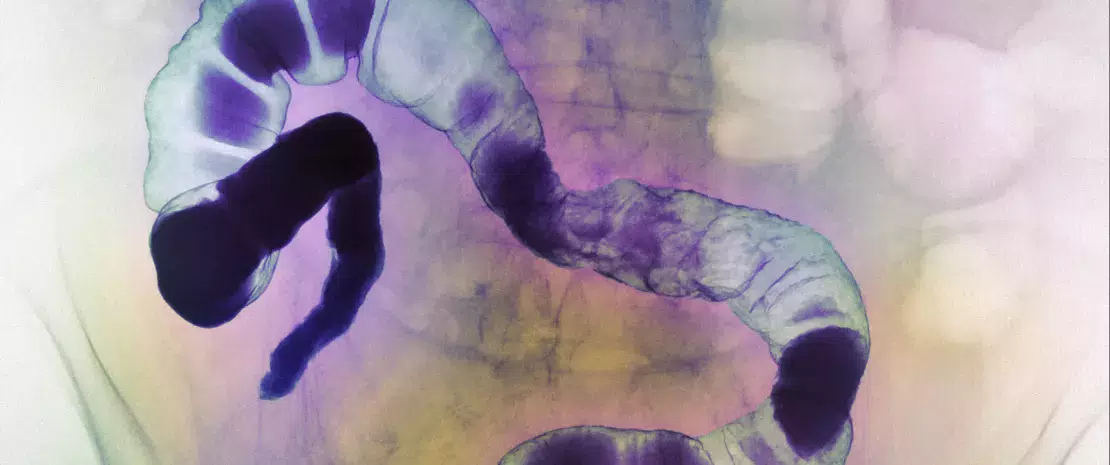Rectal cancer: F. nucleatum, a biomarker for relapse?
In locally advanced rectal cancer, chemotherapy prior to excision usually reduces the abundance of F. nucleatum on the surface of the tumor. However, the relapse rate for the disease may rest on the fate of this bacterium.
Lay public section
Find here your dedicated section
Sources
This article is based on scientific information

About this article
More and more evidence has come to signal Fusobacterium as an important intestinal bacterial pathogen associated with colorectal cancer. However, prior to a recent retrospective study, the bacterium’s role in locally advanced rectal cancer as well as its fate following chemotherapy and its involvement in tumor progression, all remained unknown. This study measured levels of F. nucleatum in the tumor microenvironment of 143 patients prior to the excision of their tumor: 87 of these patients were treated with neoadjuvant radiochemotherapy prior to excision, while the remaining 56 were control subjects.
Lower abundance of F. nucleatum with pre-operative chemotherapy
Visualization and quantification of F. nucleatum using in situ hybridization showed that the bacterium was mainly found on the luminal surface of the tumor and that radiochemotherapy significantly reduced its frequency. The density of F. nucleatum was significantly higher in untreated tumors than in treated tumors (median score of 7.4 versus 1.6), while 58% of tumors tested positive for F. nucleatum in control patients, compared to only 26% in chemotherapy patients.
Abundance is not harmful, but persistence signals relapse
The effects of treatment were evaluated using paired samples (taken before and after radiochemotherapy) from 71 patients. F. nucleatum abundance was not predictive of response to treatment. However, persistence of the bacterium following radiochemotherapy increased the risk of relapse by a factor of nine. Although no causal relationship has been confirmed, this may be due to a lack of immune cytotoxicity activation: tumors that became F. nucleatum-negative following treatment showed a strong increase in CD8+ T cells, whereas tumors that remained F. nucleatum-positive showed no induction of CD8+ T cells in post-treatment samples.
Persistence of F. nucleatum, a future biomarker?
Therefore, the persistence of F. nucleatum following chemotherapy may be associated with high relapse rates in locally advanced rectal cancer, a finding potentially related to the suppression of immune cytotoxicity. This promising biomarker for predicting the risk of relapse following neoadjuvant radiochemotherapy may lead to a more personalized clinical management of rectal cancer.






